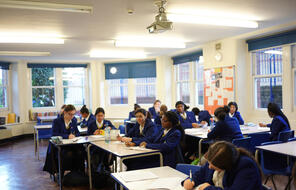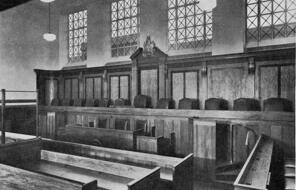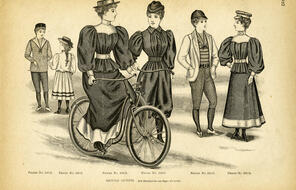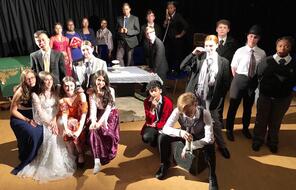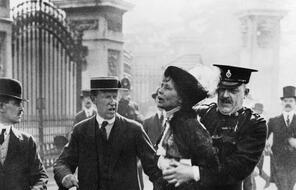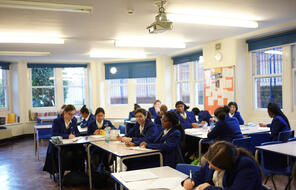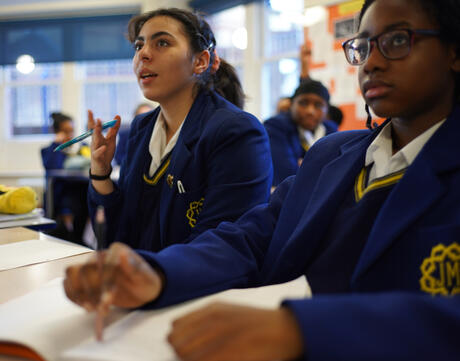
What Lessons Can We Learn?
Overview
About this Lesson
In the previous lesson, students explored the character of Eva Smith, considering the absence of her voice in the play and Priestley’s portrayal of her character through the words and actions of others. Such exploration enabled the students to consider the symbolic significance of Eva Smith and to think explicitly about the power of having a voice in society.
In this lesson, students will have the opportunity to each find their own voice and share their ideas in a structured discussion format known as a people’s assembly. In groups of six to eight, they will address the essential question of the unit – What can J. B. Priestley’s An Inspector Calls teach us about the impact of our individual and collective decisions and actions on others? – sharing their ideas and listening to the ideas of their peers. After having all shared their thoughts, they will then decide on two key ideas that they would like to share with the rest of the class. A people’s assembly is a powerful process as it gives those participating the control, the responsibility and the opportunity to be active, respectful listeners. It can be a transformative experience: the prioritisation of active listening and inclusivity means that it gives people the chance to be listened to in a way that may not be the norm. This short dialogic process can help students gain confidence in themselves and can assist with community building: it encourages students to value everyone’s contributions and to work together to collectively decide on what they will share with others.
This lesson is not only vital for students to process the message of the play, it is also incredibly useful for helping them engage with the play and connect with it on a personal level. As the research shows, personal engagement is a means of facilitating the retention of information, which is important given the fact that students will need to write about this text in a future exam setting. Moreover, having a discussion that concerns what the play can teach us about our individual and collective actions and decisions on others will help students identify the themes that exist within the play, whilst encouraging them to be conscientious individuals who are aware of their interconnectedness with other human beings.
Preparing to Teach
A Note to Teachers
Before teaching this lesson, please review the following information to help guide your preparation process.
Lesson Plans
Activities
Extension Activity
Materials and Downloads
What Lessons Can We Learn?
Analytical Writing: The GCSE Character Essay
Persuasive Writing: A Letter to a Newspaper for a Caring Community
Unlimited Access to Learning. More Added Every Month.
Facing History & Ourselves is designed for educators who want to help students explore identity, think critically, grow emotionally, act ethically, and participate in civic life. It’s hard work, so we’ve developed some go-to professional learning opportunities to help you along the way.
Exploring ELA Text Selection with Julia Torres
On-Demand
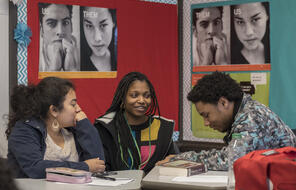
Working for Justice, Equity and Civic Agency in Our Schools: A Conversation with Clint Smith
On-Demand

Centering Student Voices to Build Community and Agency
On-Demand




